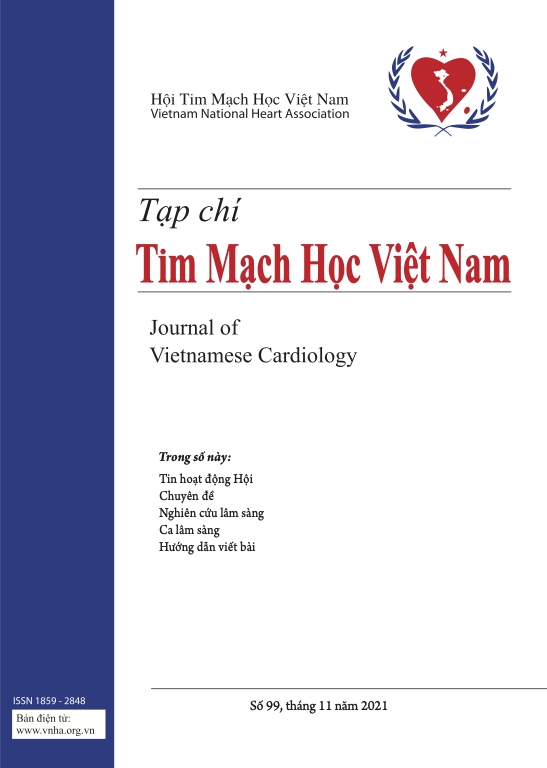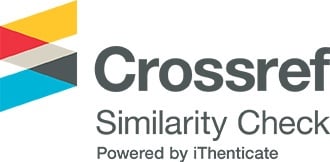Thuốc ức chế men chuyển (ACEi) và chẹn thụ thể angiotensin II (ARB) ở người bệnh suy thận mạn mức độ nặng chưa lọc máu
DOI:
https://doi.org/10.58354/jvc.105.2023.295Từ khóa:
Ức chế men chuyển, Suy thận mạn, lọc máu, Angiotensin converting enzyme inbihitor, Chronic kidney disease, HemodialysisTóm tắt
Thuốc ức chế men chuyển angiotensin (ACEi) và thuốc đối kháng thụ thể angiotensin II (ARB) thường được sử dụng ở bệnh nhân CKD. Điều này dựa trên các thử nghiệm RCT cỡ lớn và vô số dữ liệu dịch tễ học. Mặc dù vậy, giá trị của chúng trên bệnh nhân CKD mức độ nặng (mức lọc cầu thận ước tính (eGFR) <30 ml/phút /1.73 m2) vẫn chưa được biết. Những lo ngại về sự suy giảm chức năng thận khi sử dụng ACEi/ARBs, nhất là ở những bệnh nhân CKD mức độ nặng dẫn tới những kỳ vọng về việc ngừng sử dụng ACEi/ARBs ở nhóm bệnh nhân này có thể trì hoãn sự suy giảm chức năng thận với kết quả là trì hoãn việc tiến tới liệu pháp thay thế thận vấp phải sự đắn đo về nguy cơ bùng phát các biến cố tim mạch. Trên thực tế, không có nghiên cứu nào đánh giá lợi ích của ACEi/ARB trong việc giảm nguy cơ tim mạch ở bệnh thận mạn giai đoạn muộn chưa lọc máu. Một số nghiên cứu như thử nghiệm STOP-ACEi đã được thực hiện với mong muốn giải quyết những lỗ hổng về kiến thức cũng như xem xét về sự cân bằng giữa lợi ích trì hoãn lọc máu và nguy cơ tim mạch ở bệnh nhân CKD giai đoạn muộn.
Tài liệu tham khảo
Ahmed A. K., Kamath N. S., El Kossi M., et al (2010), "The impact of stopping inhibitors of the renin-angiotensin system in patients with advanced chronic kidney disease", Nephrol Dial Transplant, 25(12), pp. 3977-3982.
![]()
Bhandari S., Ives N., Brettell E. A., et al (2016), "Multicentre randomized controlled trial of angiotensin-converting enzyme inhibitor/angiotensin receptor blocker withdrawal in advanced renal disease: the STOP-ACEi trial", Nephrol Dial Transplant, 31(2), pp. 255-261.
![]()
Granger C. B., McMurray J. J., Yusuf S., et al (2003), "Effects of candesartan in patients with chronic heart failure and reduced left-ventricular systolic function intolerant to angiotensin-converting-enzyme inhibitors: the CHARM-Alternative trial", Lancet, 362(9386), pp. 772-776.
![]()
Hillege H. L., Nitsch D., Pfeffer M. A., et al (2006), "Renal function as a predictor of outcome in a broad spectrum of patients with heart failure", Circulation, 113(5), pp. 671-678.
![]()
Sarnak M. J., Levey A. S., Schoolwerth A. C., et al (2003), "Kidney disease as a risk factor for development of cardiovascular disease: a statement from the American Heart Association Councils on Kidney in Cardiovascular Disease, High Blood Pressure Research, Clinical Cardiology, and Epidemiology and Prevention", Hypertension, 42(5), pp. 1050-1065.
![]()
Qiao Y., Shin J. I., Chen T. K., et al (2020), "Association Between Renin-Angiotensin System Blockade Discontinuation and All-Cause Mortality Among Persons With Low Estimated Glomerular Filtration Rate", JAMA Intern Med, 180(5), pp. 718-726.
![]()
Ahmed A., Jorna T., Bhandari S. (2016), "Should We STOP Angiotensin Converting Enzyme Inhibitors/Angiotensin Receptor Blockers in Advanced Kidney Disease?", Nephron, 133(3), pp. 147-158.
![]()
"Randomised placebo-controlled trial of effect of ramipril on decline in glomerular filtration rate and risk of terminal renal failure in proteinuric, non-diabetic nephropathy. The GISEN Group (Gruppo Italiano di Studi Epidemiologici in Nefrologia)", (1997), Lancet, 349(9069), pp. 1857-1863.
![]()
Maschio G., Alberti D., Janin G., et al (1996), "Effect of the angiotensin-converting-enzyme inhibitor benazepril on the progression of chronic renal insufficiency. The Angiotensin-Converting-Enzyme Inhibition in Progressive Renal Insufficiency Study Group", N Engl J Med, 334(15), pp. 939-945.
![]()
Morimoto T., Gandhi T. K., Fiskio J. M., et al (2004), "An evaluation of risk factors for adverse drug events associated with angiotensin-converting enzyme inhibitors", J Eval Clin Pract, 10(4), pp. 499-509.
![]()
Ruggenenti P., Perna A., Remuzzi G. (2001), "ACE inhibitors to prevent end-stage renal disease: when to start and why possibly never to stop: a post hoc analysis of the REIN trial results. Ramipril Efficacy in Nephropathy", J Am Soc Nephrol, 12(12), pp. 2832-2837.
![]()
Steenkamp R., Rao A., Roderick P. (2015), "UK Renal Registry 17th Annual Report: Chapter 5 Survival and Cause of Death in UK Adult Patients on Renal Replacement Therapy in 2013: National and Centre-specific Analyses", Nephron, 129 Suppl 1, pp. 99-129.
![]()
"The 2015 Annual Data Report: Volume 2 – End-Stage Renal Disease in the United States. http://www.usrds.org/adr.aspx (accessed March 2, 2016)".
http://www.usrds.org/adr.aspx (accessed March 2, 2016)".">
![]()
"Effects of an Angiotensin-Converting–Enzyme Inhibitor, Ramipril, on Cardiovascular Events in High-Risk Patients", (2000), 342(3), pp. 145-153.
![]()
Foundation National Kidney (2012), "KDOQI clinical practice guideline for diabetes and CKD: 2012 update", American Journal of Kidney Diseases, 60(5), pp. 850-886.
![]()
Schmidt Morten, Mansfield Kathryn E, Bhaskaran Krishnan, et al (2017), "Serum creatinine elevation after renin-angiotensin system blockade and long term cardiorenal risks: cohort study", 356, pp. j791.
![]()
Zhang Yaru, He Dandan, Zhang Wei, et al (2020), "ACE Inhibitor Benefit to Kidney and Cardiovascular Outcomes for Patients with Non-Dialysis Chronic Kidney Disease Stages 3–5: A Network Meta-Analysis of Randomised Clinical Trials", Drugs, 80(8), pp. 797-811.
![]()








